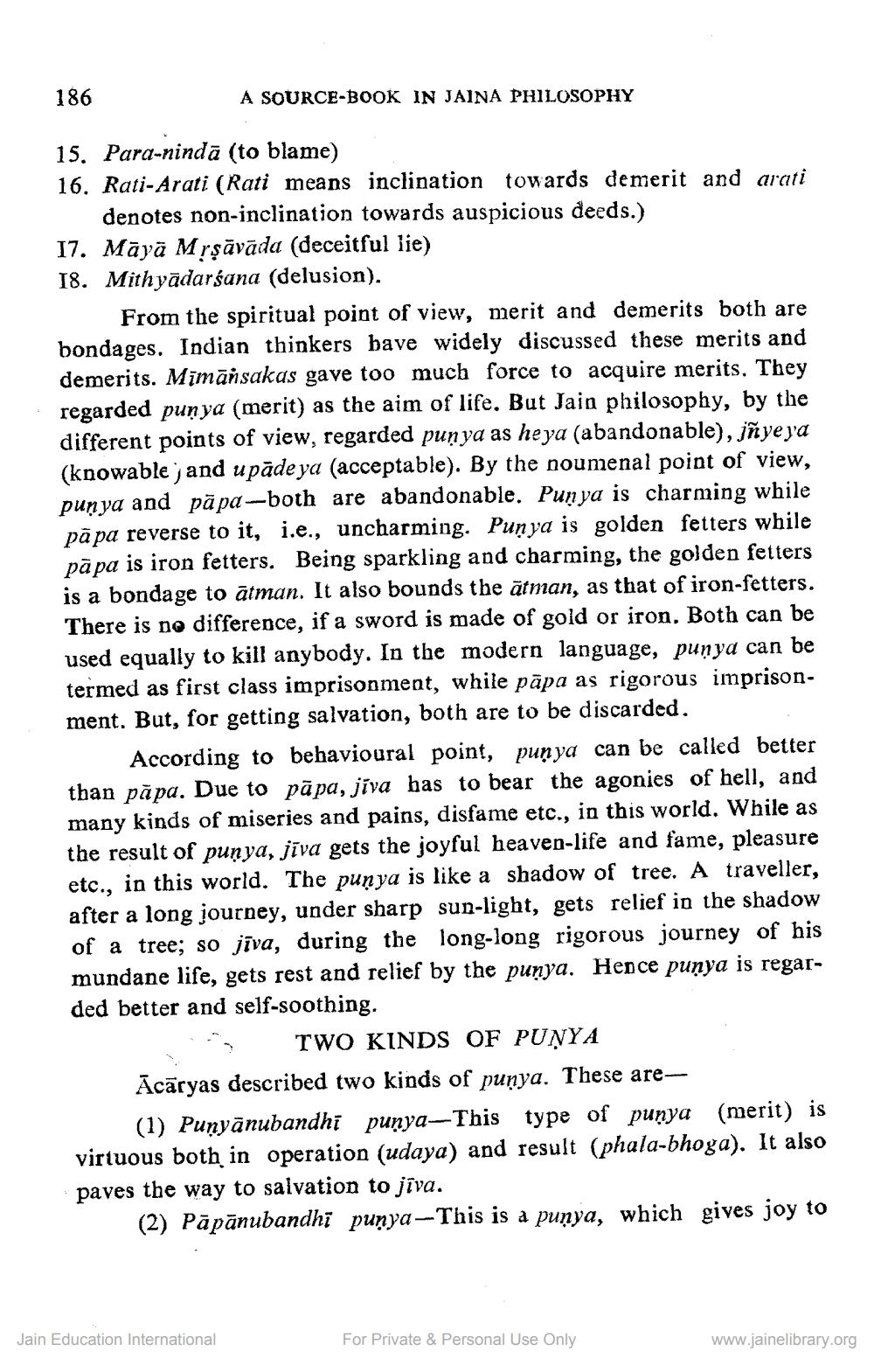________________
186
A SOURCE-BOOK IN JAINA PHILOSOPHY
15. Para-nindā (to blame) 16. Rati-Arati (Rati means inclination towards demerit and arati
denotes non-inclination towards auspicious deeds.) 17. Māyā Mrşāvāda (deceitful lie) 18. Mithyādarśana (delusion).
From the spiritual point of view, merit and demerits both are bondages. Indian thinkers have widely discussed these merits and demerits. Mīmānsakas gave too much force to acquire merits. They regarded punya (merit) as the aim of life. But Jain philosophy, by the different points of view, regarded punya as heya (abandonable), jñye ya (knowable jand upādeya (acceptable). By the noumenal point of view, punya and pāpa-both are abandonable. Pun ya is charming while pā pa reverse to it, i.e., uncharming. Punya is golden fetters while pāpa is iron fetters. Being sparkling and charming, the golden fetters is a bondage to ātman. It also bounds the ātman, as that of iron-fetters. There is no difference, if a sword is made of gold or iron. Both can be used equally to kill anybody. In the modern language, punya can be termed as first class imprisonment, while pāpa as rigorous imprisonment. But, for getting salvation, both are to be discarded.
According to behavioural point, punya can be called better than păpa. Due to pāpa, jiva has to bear the agonies of hell, and many kinds of miseries and pains, disfame etc., in this world. While as the result of punya, jīva gets the joyful heaven-life and fame, pleasure etc., in this world. The punya is like a shadow of tree. A traveller, after a long journey, under sharp sun-light, gets relief in the shadow of a tree; so jīva, during the long-long rigorous journey of his mundane life, gets rest and relief by the punya. Hence punya is regarded better and self-soothing.
> TWO KINDS OF PUŅYA Ācāryas described two kinds of punya. These are
(1) Punyānubandhi punya-This type of punya (merit) is virtuous both in operation (udaya) and result (phala-bhoga). It also paves the way to salvation to jīva.
(2) Pāpānubandhī punya-This is a punya, which gives joy to
Jain Education International
For Private & Personal Use Only
www.jainelibrary.org




